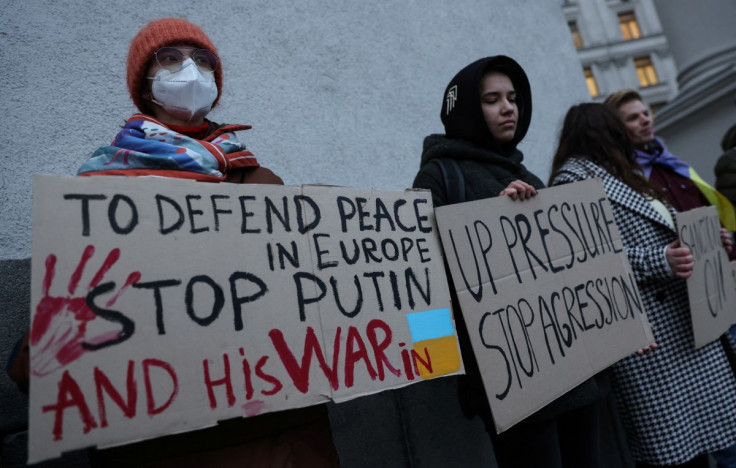EU Envoys Discuss Scope Of Sanctions After Russian Move On Ukraine Regions

European Union ambassadors began meeting on Tuesday to discuss sanctions against Russia after its recognition of two breakaway regions of Ukraine, and the EU's top diplomat promised the first punitive measures later in the day.
The bloc has repeatedly said it is ready to impose "massive consequences" on Russia's economy if Moscow invades Ukraine but has also cautioned that, given the EU's close energy and trade ties to Russia, it wants to ratchet up sanctions.
"This afternoon, the Council will decide the sanctions that we are going to take," EU foreign policy chief Josep Borrell said in Paris as foreign ministers also met for a second day. "We must act quickly ... that means this afternoon."
Separately, an EU official said the bloc's 27 ambassadors would discuss a wider package of sanctions than only travel bans and asset freezes on individuals.
"There's a whole escalation ladder, starting with Russian individuals and moving up to finance, trade, and eventually energy. So, technically, a lot is possible," a senior EU diplomat told Reuters. "The problem politically is how to craft sanctions that all can agree to."
EU officials and diplomats said some member states wanted sanctions to be limited in response to Russian President Vladimir Putin's move on eastern Ukraine, while others want to see the full range of sanctions that have been discussed in recent weeks to be rolled out now.
Last week, diplomats told Reuters that Austria, Hungary and Italy, Russia's closest allies in the bloc, had an unwritten agreement that economic and financial sanctions would be imposed in the case of a clear-cut Russian military invasion of Ukraine.
However, Baltic, central and eastern European states say that sanctions should be imposed immediately because Russia was already showing military aggression towards Ukraine.
The West imposed economic sanctions on Russia in 2014 over its annexation of the Crimean peninsula from Ukraine, with measures targeting Russia's energy, banking and defence sectors.
Diplomats have said new measures could include targeting Russian oligarchs, banning EU transactions with private Russian banks and possibly cutting all Russian banks from the SWIFT network that is the lifeblood of international money transfers.
Those kinds of sanctions would likely be approved by EU leaders at a special summit in Brussels, although no such meeting has yet been called.
© Copyright Thomson Reuters {{Year}}. All rights reserved.





















